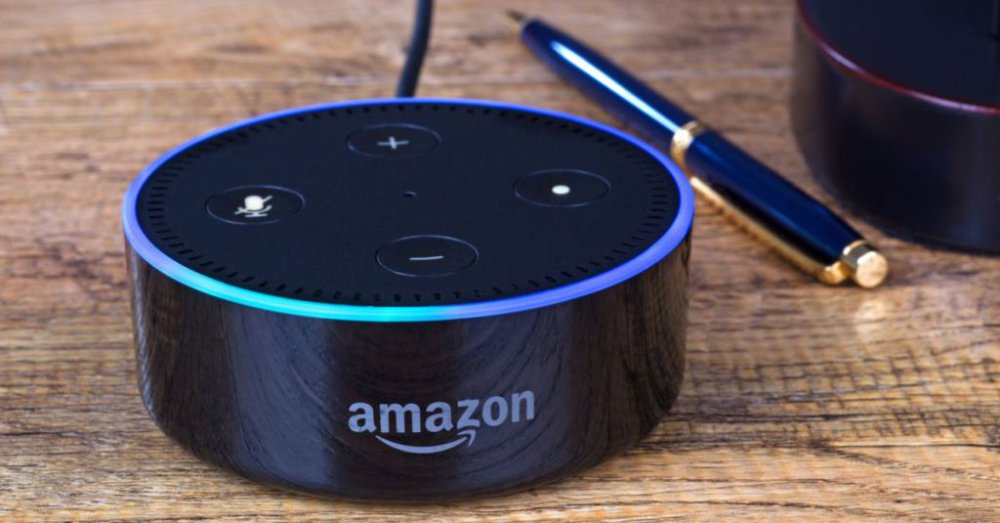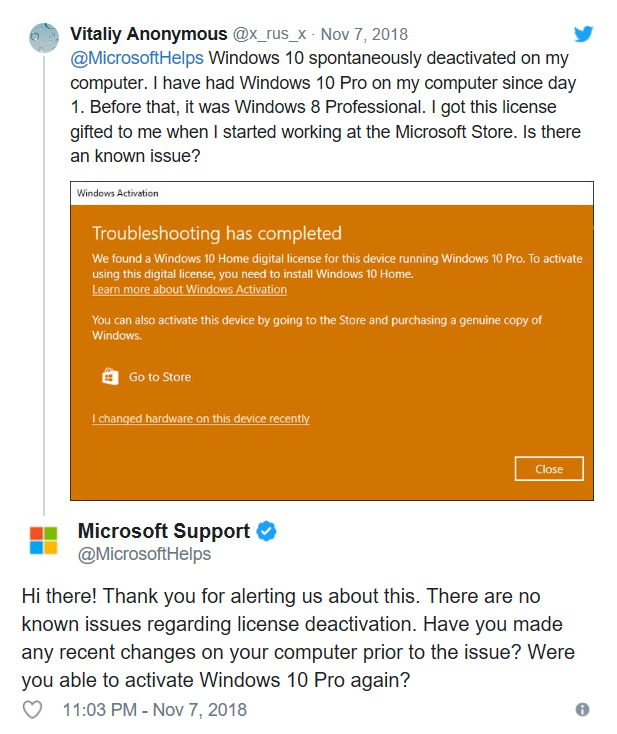Everything posted by allheart55 Cindy E
-
Joke Of The Day
- Joke Of The Day
- Judge asks if Alexa is witness to a double murder
Christine Sullivan was stabbed to death on 27 January 2017, in the kitchen of the New Hampshire home where she lived with her boyfriend. Her friend, Jenna Pellegrini, was also murdered that day, in an upstairs bedroom. There might have been a witness who heard Sullivan’s murder as it happened, given that an Echo smart speaker equipped with Amazon’s Alexa voice assistant was sitting on the kitchen counter the whole time. What did it hear? A New Hampshire judge says that Amazon must let us know. Last week, the judge ordered Amazon to turn over any recordings the Echo device may have made between the day of the murder and two days later, when police found the women’s bodies beneath a tarp under the porch. The murder weapons – three large knives – were found wrapped in a flannel shirt buried one foot below the bodies. From court documents seen by the Washington Post: The court finds there is probable cause to believe the server(s) and/or records maintained for or by Amazon.com contain recordings made by the Echo smart speaker from the period of Jan. 27 to Jan. 29, 2017… and that such information contains evidence of crimes committed against Ms. Sullivan, including the attack and possible removal of the body from the kitchen. A 36-year-old New Hampshire man, Timothy Verrill, has been charged with two counts of first-degree murder in the fatal stabbings and is expected to stand trial in May. Prosecutors allege that Verrill killed the two women when he grew suspicious that one of them was tipping off the police about a suspected drug operation. Verrill has pleaded not guilty. This is at least the second time that a court has demanded Alexa recordings so that a digital assistant can testify in a murder case. The first case was that of James Andrew Bates, who pleaded not guilty to the November 2015 murder of Victor Parris Collins, whose body was found in a hot tub. Amazon had resisted handing over audio recordings from Bates’s Echo, arguing that prosecutors failed to establish it was necessary for the company to hand over the data and that it had to weigh its customers’ privacy against such a request. The company argued that both its users’ requests to Alexa and the device’s responses are covered by First Amendment rights, and that law enforcement should thus meet a high burden of proof to require release of the data. Why First Amendment? To Amazon’s way of thinking, a user’s voice requests are protected because the right to free speech covers the “right to receive, the right to read, and freedom of inquiry” without government scrutiny. Amazon has argued that Alexa’s responses are also protected because ranked search results constitute a “constitutionally protected opinion”, which qualified as free speech in a former, separate case involving Google. The tug-of-war was made moot when Bates agreed to hand over the recordings. Whatever Alexa recorded, it wasn’t conclusive evidence of a murder. Benton County Prosecutor Nathan Smith said that the evidence could have supported more than one reasonable explanation for the death, and the charges against Bates were dropped in November 2017. As far as this more recent murder trial is concerned, Amazon told The Post that the company hasn’t changed its stance on the matter from what it argued in the Bates case: it’s still prioritizing consumer privacy and won’t necessarily simply hand over customer information “without a valid and binding legal demand properly served on us.” From its statement: Amazon objects to overbroad or otherwise inappropriate demands as a matter of course. Even if Amazon does eventually turn over recordings in this case, there’s no guarantee that Alexa heard anything that would serve to prove innocence or guilt. Typically, Echo has to be prompted by the wake words “Alexa,” “Computer” or “Echo” to begin recording. Source: Sophos- Joke Of The Day
- Joke Of The Day
- Joke Of The Day
- Microsoft mistake leaves Windows 10 users fuming
allheart55 Cindy E replied to allheart55 Cindy E's post in a topic in Microsoft Support & DiscussionsIt happened to me. I upgraded, years ago, from Windows 7 Pro to Windows 10 Pro. The watermark showed on my computer for 3 1/2 days.- Microsoft mistake leaves Windows 10 users fuming
Microsoft Windows 10 users were left livid late last week after Microsoft mistakenly told them that their licenses were invalid. On Thursday, Windows 10 Pro and Enterprise customers began complaining online that Microsoft was declaring their license keys invalid. The users, who confirmed that they had legal copies of the operating system, were told that they were actually using Windows Home. When they checked, the Pro version was still installed. The problem led to Windows deactivation, according to some: My digital entitlement is gone from my Microsoft account and I have a Windows 10 Home key now. Windows is deactivated because I went from Windows 10 Pro to Home and it doesn’t match anymore. The issue affected both Pro and Home versions of Windows 10 that had been upgraded from earlier versions of the operating system, along with clean Windows 10 installs, according to posters on Reddit. One Windows user reported that purchasing a Windows 10 Pro key in the Microsoft store was listed as an option for him, even though he had already upgraded to Windows 10 Pro years ago. When he tried to repurchase the key, it would not let him. Customers were confused by what seemed to be inconsistent responses from Microsoft. Microsoft Support’s Twitter account denied any knowledge of a problem with Windows activation: It then fell to a mixture of customers and volunteer moderators to tell the rest of the customer base what was happening. One of them posted this response from a Microsoft live chat support agent: I am very sorry to inform you that there is a temporary issue with Microsoft’s activation server at the moment and some customers might experience this issue where Windows is displayed as not activated. Our engineers are working tirelessly to resolve this issue and it is expected to be corrected within one to two business days. An actual Microsoft employee then commented on the customer’s post to offer an official explanation, and a volunteer moderator on the company’s forums also stepped in to relay information about the issue. By the end of the day on Thursday, the company had indeed fixed the problem, according to reports. Users also said that they were able to run the Activation Troubleshooter program manually to fix the problem if Microsoft’s changes didn’t correct it automatically. Some customers were irked by Microsoft’s regular online checks for operating system legitimacy. “And someone please once again explain why DRM for an operating system was a good idea?” quipped one. Another complained that Microsoft had created a system to deter pirates with its regular online checks but ended up causing trouble for paying users. Unfortunately, this isn’t the first time that Microsoft has let users down with its constantly connected operating system, which also offers the ability to install updates automatically for users. Just last month, the company had to stop offering its October 2018 update after users complained that it was deleting files. Source: Sophos- Joke Of The Day
- Joke Of The Day
- Joke Of The Day
- Joke Of The Day
- Joke Of The Day
- Joke Of The Day
- Joke Of The Day
- Private Facebook data from 81,000 accounts discovered on crime forum
Malicious browser extensions have been blamed for the theft of private messages and data from 81,000 Facebook users recently discovered for sale on a cybercrime forum. According to the BBC Russian Service investigation, samples of the data were discovered in September being hawked for 10 cents per account on an English-language forum with Russian connections. Most of the breached accounts were from Russia and Ukraine, but Facebook users in the UK, Brazil and other countries are also among the victims, the BBC said after verifying the find with UK cybersecurity company Digital Shadows. Criminals offered another 176,000 accounts although it’s possible that some of the email address and phone number data in this cache could simply have been scraped from public profiles. Stolen data from the 81,000 accounts that appeared to be genuine included intimate exchanges between Facebook users. One example, according to the BBC, included photographs of a recent holiday, another was a chat about a recent Depeche Mode concert, and a third included complaints about a son-in-law. When the BBC posed as a buyer, the seller claimed he could supply access to a further 120 million accounts, which Digital Shadows believes is probably untrue because it implies a huge data breach Facebook would have noticed. This is a big problem for investigators: working out what’s been stolen or breached can be difficult when cybercriminals make exaggerated or false claims about what they have in their possession. Are rogue browser plug-ins to blame? Where did the data stolen from the 81,000 accounts come from? The BBC story suggests the most likely culprits are rogue desktop browser plug-ins or extensions, but doesn’t offer any conclusive evidence. Given the cache’s relatively small size and concentration on Russian accounts, this seems plausible. Malicious desktop extensions, used by criminals not only to steal data but push adware pop-ups and bogus tech support scams, are a problem stretching back years. Chrome’s popularity makes it the choice target, but Firefox and other browsers are also in the firing line. Facebook told the BBC it knew of a rogue extension designed to steal data from its users, although it refused to name names. In other cases, extensions can be a gray area, for example the case of a Chrome marketing extension discovered earlier this year by Facebook to be exploiting a loophole to discover the names of people in ‘closed’ groups. Browser makers – stand up Google – are trying to get on top of this issue but reports of newly-discovered rogue extensions keep cropping up. It’d be easy to say “don’t install suspect or unknown extensions”, but life isn’t that simple. An extension can be innocuous when you first download it but turn bad at a later date. Because extensions update automatically, this change can be incredibly difficult to spot. The soundest advice is to download as few as possible, pick on known publishers, and disable them when not in use. Always download by visiting the browser maker’s repository and not by following web links. Source: Sophos- Moving to New Server
That's weird, I haven't had any problems at all.- Joke Of The Day
- Joke Of The Day
- Joke Of The Day
- Joke Of The Day
- Moving to New Server
Awesome!- Joke Of The Day
Account
Navigation
Messages
Go to inbox Compose NewNotifications
Notification SettingsSearch
- Joke Of The Day























